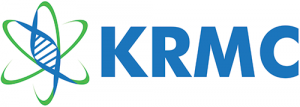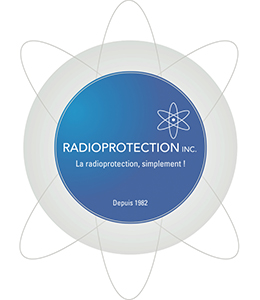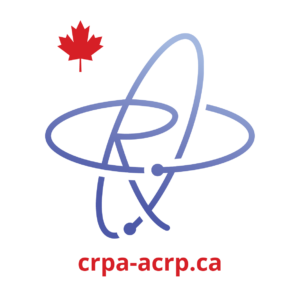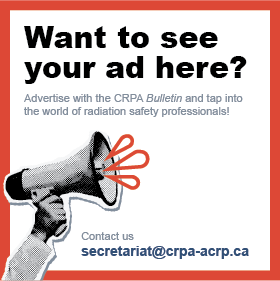CRPA Asked Corporate Members, How Has the Pandemic Affected Your Business?
As a result of the pandemic, almost every business has had to change or adapt over the past year, and, sadly, many have had to close. Radiation protection may not have been affected as much as other sectors, but we know there have been impacts.
In February, we asked our corporate members for their perspectives and experiences during the pandemic. Representatives from the following organizations agreed to share their perspectives:
 Krivonosov Risk Management Consultants (KRMC) is a multidisciplinary Canadian firm that helps companies manage risk from a variety of hazardous materials and processes. The firm specializes in biosafety and chemical and radioactive hazard management and provides services in laser safety, industrial hygiene, X-ray safety, general laboratory safety, and pre-start health and safety reviews.
Krivonosov Risk Management Consultants (KRMC) is a multidisciplinary Canadian firm that helps companies manage risk from a variety of hazardous materials and processes. The firm specializes in biosafety and chemical and radioactive hazard management and provides services in laser safety, industrial hygiene, X-ray safety, general laboratory safety, and pre-start health and safety reviews.
 Radiation Safety Institute of Canada (RSIC) is an independent national not-for-profit organization dedicated to promoting and advancing radiation safety in the workplace, environment, and community. Their efforts are supported by a broad variety of radiation safety services offered by the institute to companies and institutions, labour and community groups, and the general public.
Radiation Safety Institute of Canada (RSIC) is an independent national not-for-profit organization dedicated to promoting and advancing radiation safety in the workplace, environment, and community. Their efforts are supported by a broad variety of radiation safety services offered by the institute to companies and institutions, labour and community groups, and the general public.
 Radioprotection Inc. is a Canadian company that has been helping clients with all their radiation safety requirements (from radioisotopes to X-ray devices) for 40 years. They’ve been doing business in Quebec since 1982 and are trusted by everyone, from large companies to neighbourhood dentists and medical imagery departments. Calibration, laboratory tests, training, and consulting . . . they’re a one-stop-shop for all your radiation safety needs.
Radioprotection Inc. is a Canadian company that has been helping clients with all their radiation safety requirements (from radioisotopes to X-ray devices) for 40 years. They’ve been doing business in Quebec since 1982 and are trusted by everyone, from large companies to neighbourhood dentists and medical imagery departments. Calibration, laboratory tests, training, and consulting . . . they’re a one-stop-shop for all your radiation safety needs.
As a safety discipline, radiation protection has largely been considered an essential service during the pandemic. In your experience, has business increased, decreased, or stayed about the same?
Stéphane Jean-François, Radioprotection Inc.: Radioprotection Inc. offers a full range of radiation protection services, from survey meter calibration to laboratory services, training and inspection, and quality control of X-ray devices of any kind.
Our clients include dentists, chiropractors, and veterinarians, many of whom have been closed for a while, so we noticed that some of our work was temporarily postponed during the first months of the pandemic (March and April). Some clients allowed us to continue working, which was ideal, as there were no clients in their businesses, so the risk was low! Once restrictions lifted, we made up for lost time.
On the other hand, all of our industrial customers (mines, paper mills, refineries, civil engineering companies, etc.) and the nuclear medicine community continued to operate uninterrupted, and demand for our services increased because of Canadian Nuclear Safety Commission (CNSC) requirements. When CNSC resumed their compliance activities, the situation returned to normal quite quickly!
Tara Hargreaves, RSIC: There have been different impacts on different aspects of our business. While our training continues to be well attended, other services have seen a decline, either due to clients scaling back their operations or because we were avoiding work that would require us to enter other businesses. Our clients have a mix of policies with regard to allowing contractors on site, and our contractors were not always comfortable going to a client site.
Liz Krivonosov, KRMC: In March 2020, everything came crashing to a halt. But it all came back and more over the rest of 2020 and 2021. The radiation protection side has been pretty much business as usual over the long term. However, our company has three biosafety specialists and several industrial hygienists, and the response to the pandemic in those fields has been extraordinary. So, overall, business has increased tremendously, but not in radiation protection.
Have you created or begun to offer new products/services as a result of the pandemic?
Stéphane Jean-François, Radioprotection Inc.: The pandemic has closed and isolated some northern regions. We had some customers who requested remote training before the pandemic, so when northern regions were isolated due to the pandemic, we took advantage of the opportunity to adapt our very popular three-day radiation protection professional (RPP) training to remote delivery and managed to create a level of interaction that is almost as good as in-person classroom training. Participants were impressed by the results, which exceeded their expectations! However, remote learning will never replace the face-to-face version of our courses, because interaction with the participants on a screen is just not the same as in a classroom, and the participants have to be satisfied with being observers during the demonstrations.
Tara Hargreaves, RSIC: No.
Liz Krivonosov, KRMC: Yes, but not in radiation protection. We continued to provide radiation safety training online, but we have been offering this service for well over five years.
Have you made any changes to the products/services you typically offer as a result of the pandemic? If so, do you expect that the changes will continue after the pandemic is over?
Stéphane Jean-François, Radioprotection Inc.: The changes we’ve made are mainly internal. We’ve taken advantage of this exceptional disruption to improve the quality of our services and administration by improving our internal systems. These changes were made with sustainability in mind and will continue well beyond the end of the pandemic. At Radioprotection Inc., when we get lemons, we make lemonade!
Tara Hargreaves, RSIC: Yes. The biggest change is that all of the training we offer is now delivered through online platforms. We brought the classroom to the cloud. This has been surprisingly successful and we expect to continue to offer courses online even when we can go back to in-person learning. It’s likely that both options will be offered, as some prefer in-person learning while others appreciate being able to attend the training without a need to travel.
Liz Krivonosov, KRMC: We’ve made no real changes.
Has the pandemic affected the way in which you connect with customers or the radiation protection community at large?
Stéphane Jean-François, Radioprotection Inc.: We’ve always used modern communication methods and social media to connect with clients, show support, and let them know about our availability. The pandemic hasn’t changed anything about that.
Tara Hargreaves, RSIC: Aside from the move away from in-person learning, much of our client contact was already being offered by phone or email. I do find that there’s been a move away from teleconferences in favour of online meetings, so we get to see people’s faces more often. In-person visits with clients and partner organizations have been put on hold, so that’s a big difference. I suspect others in my organization would have more to say about this.
Brian Bjorndal, RSIC: We did not perform site inspections in 2020 because of COVID-19.
Liz Krivonosov, KRMC: Aside from everyone working from home in the radiation community and the plethora of virtual meetings, we have not seen many changes with clients. Even CNSC was conducting inspections virtually for our clients.
Is there anything else you’d like to mention?
Stéphane Jean-François, Radioprotection Inc.: Our company is constantly improving our services and looking for ways to better serve customers. Our motto is “Simply radiation protection!” In 2022, we will proudly celebrate our 40th anniversary, and, as we prepare for this important milestone, we’re renewing our commitment to our values and our mission.
Brian Bjorndal, RSIC: Certainly, there has been an impact on the institute as a whole. We’ve observed disruption in some services we deliver through the National Laboratories because of client business decisions in response to COVID-19 (e.g., temporary shutdowns). Institute staff from the national office in Ontario are working remotely. Institute staff at the National Laboratories continue to operate as usual but strictly adhere to provincial and federal health requirements and guidelines.
Liz Krivonosov, KRMC: I think those companies that were diversified in their services fared the best during the last year.
 Tara Hargreaves
Tara Hargreaves
Tara Hargreaves is a staff scientist and manager of training at the Radiation Safety Institute of Canada. She is a highly effective instructor with 15 years of teaching experience. She is also knowledgeable in the practical application of radiation protection principles in a variety of industrial and institutional settings. Tara is a member of CRPA and a registered radiation safety professional.
Brian Bjorndal
Brian Bjorndal is a manager and scientist at the Radiation Safety Institute of Canada’s National Laboratories in Saskatoon, Saskatchewan. Brian has over 25 years of experience in radiation safety in industry, academia, and research.
Stéphane Jean-François
Stéphane Jean-François is a dedicated, long-time member of CRPA, a passionate radiation safety officer, a former CNSC inspector, and a certified health physicist. He is comfortable with radioisotopes and X-rays in medical, research, and industrial areas, and he loves communication and training. Since 2012, he has been co-owner and president of Radioprotection Inc.
Liz Krivonosov
Liz Krivonosov is the founder of Krivonosov Risk Management Consultants (KRMC) Inc., which offers specialized consulting in radiation, chemical, and biosafety. Prior to forming her own company, she worked as the radiation safety officer at Ryerson University, and, for almost 20 years, she worked at the University of Toronto, which operates the largest non-commercial CNSC waste licence in Canada. Liz received an award for her work as an engineer/radiation protection specialist on the Deloro Mine decommissioning project. Liz is also a recognized conference speaker. In 2018, the American Industrial Hygiene Association (AIHA) selected Liz as a distinguished lecturer on laser safety.
Do you want to read more articles like this?
The Bulletin is published by the Canadian Radiation Protection Association (CRPA). It’s a must-read publication for radiation protection professionals in Canada. The editorial content delivers the insights, information, advice, and valuable solutions that radiation protection professionals need to stay at the forefront of their profession.
Sign up today and we’ll send you an email each time a new edition goes live. In between issues, check back often for updates and new articles.
Don’t miss an issue. Subscribe now!
Subscribe

 Tara Hargreaves
Tara Hargreaves



